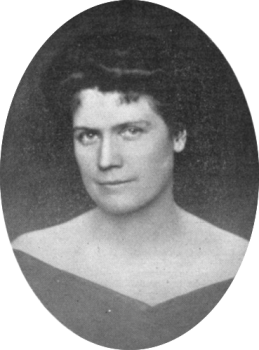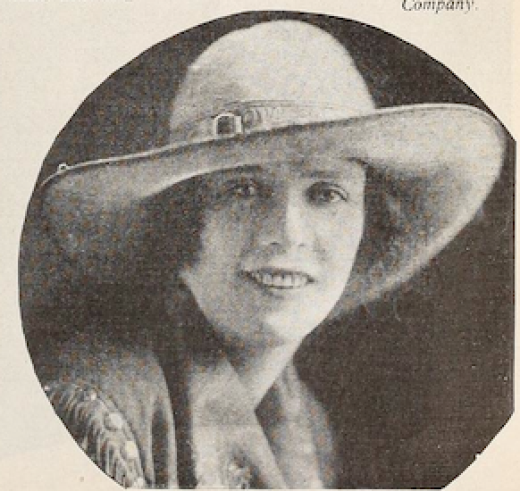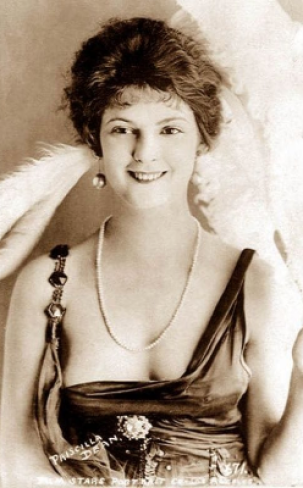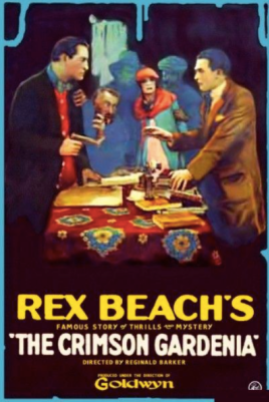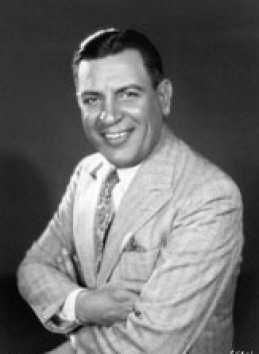
One hundred years ago this week, Grace Kingsley reported on yet another attempt to break into the film business:
It appears that Hollywood isn’t a wild enough place any more for the making of Wild West picture plays. Anyhow, that’s what Messrs E.D. Ulrich, Wallace D. Coburn, Charles M. Bair and others think. Consequently they have organized the Circle C Film Company, to produce photoplays on western subjects, but have decided that the proper place is in Montana, the home of the picturesque cowboy and the long-horn.
Coburn and Bair were both ranchers in Billings, Montana; I couldn’t find any information on Ulrich. Bair had made a fortune during the Klondike Gold Rush in 1898 selling equipment to prospective miners, then he went back to sheep ranching. Coburn, owner of the Circle C Ranch, had produced and starred in one film in 1918, The Sunset Princess, which was shot in Montana and based on his story. So they planned to do more of the same.
The Circle C Film Company never did make a film. Their high hopes came to nothing, which isn’t particularly unusual in Hollywood. Other than Kingsley, nobody reported on it. The final paragraph shows how she learned about the company:
Securing of players for the company is going forward, and the Circle C officials announce the engagement of a young woman whom they consider a find in the film world as their leading woman. She is Grace Gordon, an actress of 18, formerly a dancer, but who has of late, during the past year, been playing small parts in various studios. Miss Gordon not only is possessed of much beauty and talent, but she is an accomplished horse woman.
Kingsley didn’t mention that among her attributes, Grace Gordon was her niece. Her mother was Kingsley’s sister, Mildred Kingsley Mossman. Her father Edward Mossman had died in 1915, so they were sharing a house with her grandparents as well as Kingsley, just a bit north of downtown Los Angeles on Solano Avenue. The house is still there.
Despite occasional mentions in her aunt’s columns, Gordon’s career was confined to supporting and uncredited roles. She married physician Stuart Nolan in 1928 and retired from acting. This just shows how hard finding work in film was, even with publicity in the biggest daily newspaper in town. Sometimes because history is all about the people who were successful, it’s easy to forget how rare it is.
In just this one week, several actors announced hopeful new ventures, but none of them worked out the way they wanted them to:
- Monroe Salisbury, “one of the screen’s most popular idols,” was starting the Monroe Salisbury Players. Kingsley wrote: “it is understood the new organization has ample backing and that it has secured the services of several well-known writers of magazine and screen stories. No expense is to be spared.” Salisbury had been a leading man with Cecil B. De Mille and at Universal. His most famous role was Alessandro in Ramona (1916). However, his own production company only made one film, The Barbarian (1921). After that, he appeared in only one more film for a small company then he retired.
- Rita Stanwood, theatrical and film actress, was returning from maternity leave to play opposite her husband H.B. Warner in a new Jesse D. Hampton production, Gray Wolf’s Ghost (1919) but that was that. She had two more children, and returned to the screen only once more, in 1935 after she divorced Warner, a successful supporting actor.
- Priscilla Dean made arrangements to start her own company, if she could amicably end her contract with Universal. They didn’t let her go, but it wasn’t so bad. She got to work with director Tod Browning and star in films like Under Two Flags (1922) and White Tiger (1923).
- Theda Bara was looking in to forming her own company, because Fox didn’t want to pay the $10,000 per week she was asking. She never did; instead she got married and retired in 1921. She tried a comeback in 1925 with The Unchastened Woman, but it wasn’t a hit.
- Theodore Kosloff, a Russian dancer signed with Famous Player-Lasky. His first film was to be directed by Cecil B. De Mille and it would be based on the play The Wanderer. This fell through, but he got to star in Tree of Knowledge (1920) directed by De Mille’s brother William. He went on to appear in supporting roles in several films C.B. De Mille directed including Affairs of Anatole (1921) and King of Kings (1927).
It’s never been easy to work in film.
This week, Kinglsey got to see two enjoyable movies, Nugget Nell, a Western burlesque full of “sparkling originality” in which Dorothy Gish captures “bands of desperadoes by the power of her wit and her strong right arm” and Misleading Widow, a fresh and entertaining comedy that turns into a bedroom farce in which Billie Burke wears terribly sophisticated clothes. However, her best review was of a stinker so bad that all she could do was point and laugh at it:
A fellow had an awful lot of bad luck in Ruling Passions at the Victory. First a girl promised to marry him, but only for his money, then another fellow he had taken in and given a home to and made a partner of in business stole the girl, though the man distinctly told him to “keep away from her.” And right on top of this the doctor ordered him not to smoke any more.
No wonder he was so sore that when the picture opens he is enjoying a perfect orgy of peevishness—just chewing up the scenery and everything. He had a nurse, and the valet was the guy that let us in on the poor man’s troubles, she wanting to know why he never smiles. And when the man tells the nurse he’s going to watch a ‘dispossess’ of one of his tenants because they can’t pay the rent, and states with a fiendish, but somewhat naïve glee that he “just loves to see people suffer,” she decides that what he needs is a good dose of common sense—and a smoke…
Certainly he was a changed man from the first moment that the pretty nurse lighted a cigarette for him. He forgave everybody, pressed money into the hands of the “dispossessed” and wiped away a tear, and, instead of ruining his rival on Wall Street, took the rival’s child into his arms and kissed it. Oh, good. So that, when the reformed man says to the nurse “I’ve been acting like a fool!” we echo a heartfelt acquiescence.
Ruling Passions was supposed to be a serious drama about a millionaire’s reformation. We can’t see just how bad it was now because it’s lost. I suppose that critics get paid for suffering through the dull ones, not having fun at Dorothy Gish movies.
